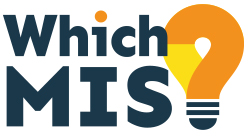We received many comments following our post earlier this week about the ethics of local authority support teams receiving referral fees from unnamed MIS providers for recommending schools switch to their systems.
We said:
“Ultimately, whether or not the principle of paying referral fees is right or wrong is a matter of opinion. There are valid arguments to be made on both sides of the issue.”
It was pointed out to us that ultimately, whether or not the principle of paying referral fees is right or wrong is rather about whether a local support unit is part of the local authority. If so, as legal entities they would be seen as subsidiaries of LAs and they would therefore need to follow the same rules and governance as public bodies.
We also said:
“A small referral fee is less likely to be seen as a conflict of interest than a large one.”
We were reminded that small or large should make no difference – if the principle is wrong!
Someone also suggested that instead of ‘referral fees’ we should use the term ‘kickbacks’, so we did some research into both terms.
Kickbacks
The Bribery Act 2010 makes it an offense for anyone to offer, promise, or give a bribe to another person, or to receive or accept a bribe, with the intention of influencing the way that person performs their duties.
This includes public officials, such as SLSUs (School Local Authority Support Units), if they are responsible for making decisions about which software to purchase for schools.
If a supplier is found to have offered kickbacks to public officials, they could face a fine of up to £10 million or imprisonment for up to 10 years, or both. The public officials involved could also be fined up to £5 million.
In addition to the legal risks, there are also ethical concerns about offering kickbacks. Kickbacks can create a conflict of interest, since SLSUs may be more likely to recommend a particular software product if they are offered a kickback. This could lead to schools buying software that is not necessarily the best fit for their needs.
For these reasons, it is important for suppliers to avoid offering kickbacks.
Referral fees
Whether it is legal for a supplier to offer SLSUs referral fees for schools that buy their software depends on the specific circumstances.
The Bribery Act 2010 does not specifically prohibit referral fees. However, it does make it an offense for anyone to offer, promise, or give a bribe to another person, or to receive or accept a bribe, with the intention of influencing the way that person performs their duties.
In the case of SLSUs, they could be seen as being responsible for making decisions, or influencing decisions, about which software to purchase for schools. Therefore, if a supplier offers an SLSU a referral fee with the intention of influencing the SLSU’s decision, this could be considered a bribe.
However, not all referral fees are illegal.
For example, a supplier could offer an SLSU a referral fee if the SLSU does not have any decision-making power over which software is purchased. In this case, the referral fee would not be considered a bribe because it would not be intended to influence the SLSU’s decision.
We were told of several support teams receiving such referral fees from MIS providers for any schools that went on to purchase a new MIS from them.
To test this, we asked a number of support teams about referral fees and those who have responded have assured us that they do not receive any such fees from MIS providers.
We would love to hear from anyone who is able to shed light on this matter. Are referral fees being offered? If so, is this ethical? What impact does it, or could it, have on decisions made by schools?
Please let us have your thoughts and comments.
Regarding referral or kickback fees, it’s important to understand who and what they are for, in this case, Management Information…
Certainly gets you thinking. How ethical is it to pay any kind of referral fee to Local Authority teams? I’m…
Any payment like this surely means that schools are no longer getting independent advice from public bodies – surely that…
this is certainly a topic that’s got people talking. I met someone yesterday who confirmed thsi actually happens but has…


2 responses to “The difference between a referral fee and a kickback”
Any payment like this surely means that schools are no longer getting independent advice from public bodies – surely that is unethical?
this is certainly a topic that’s got people talking.
I met someone yesterday who confirmed thsi actually happens but has no evidence – something we’ve heard over and over again.